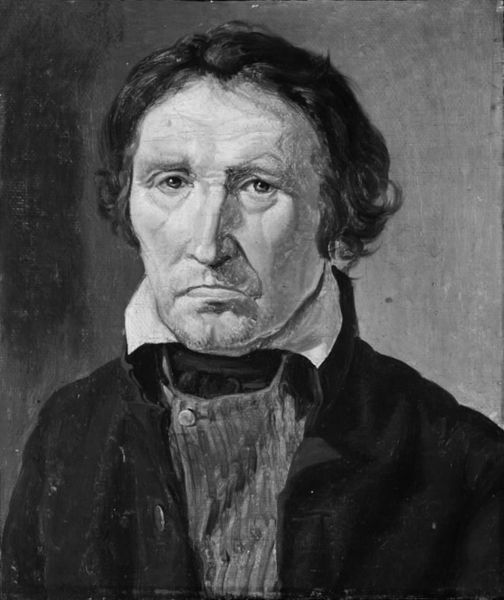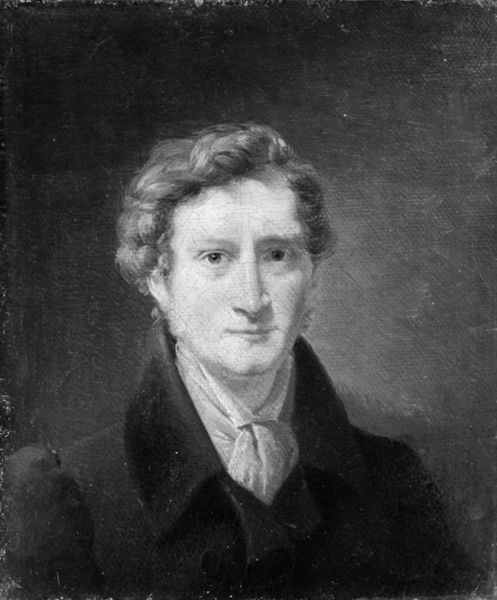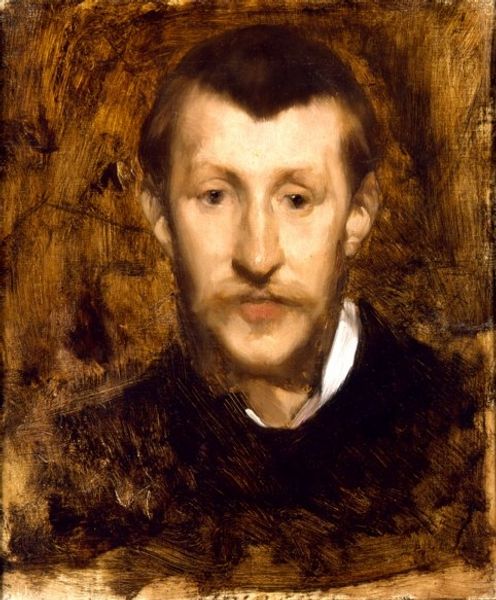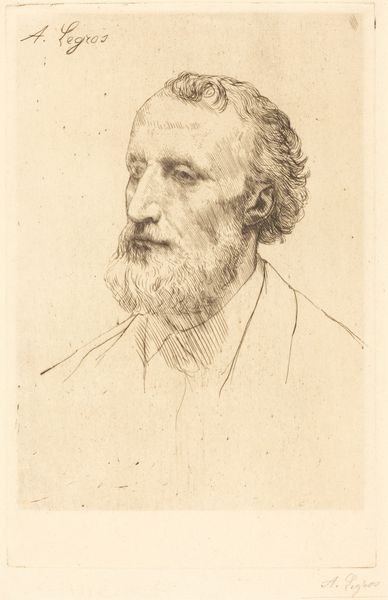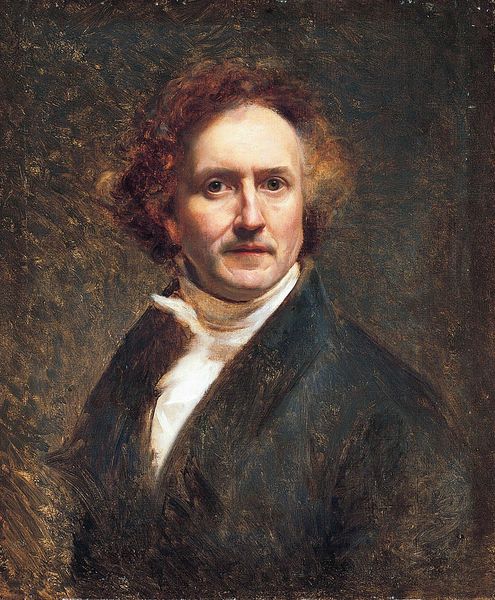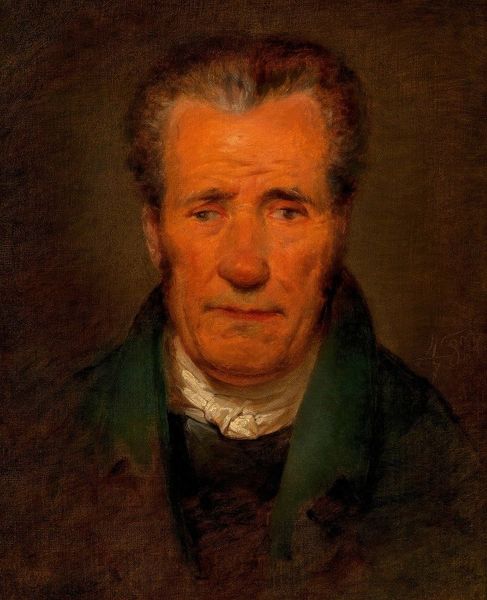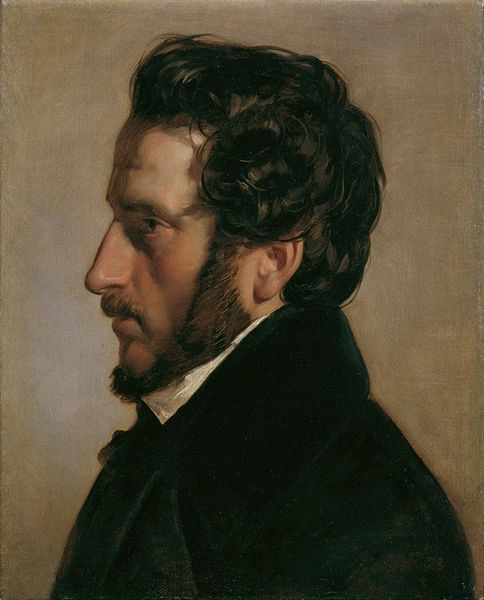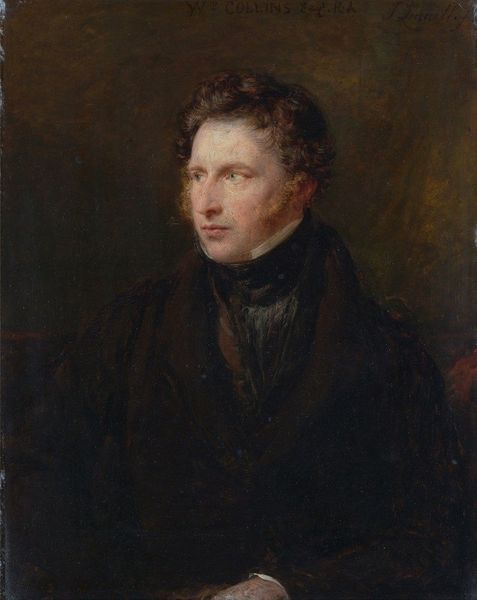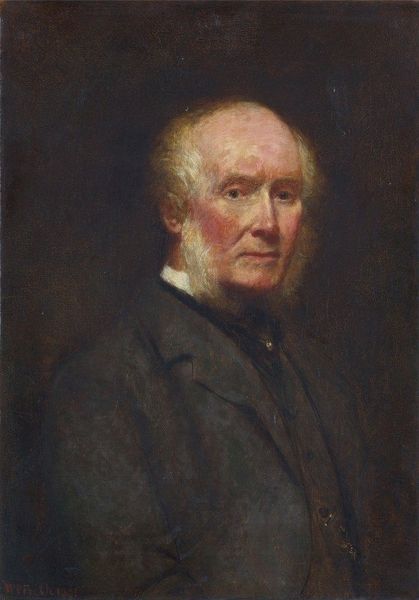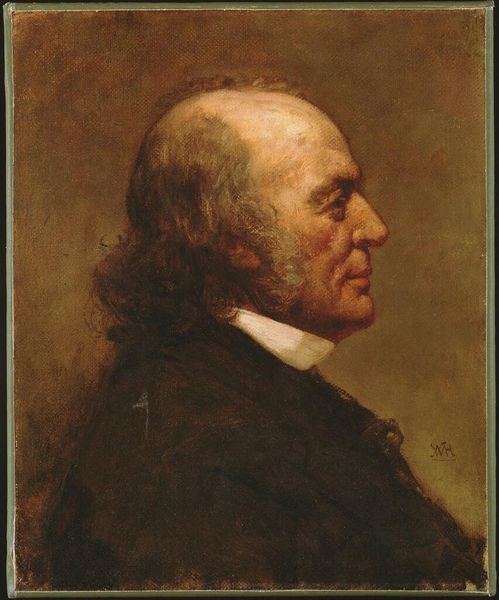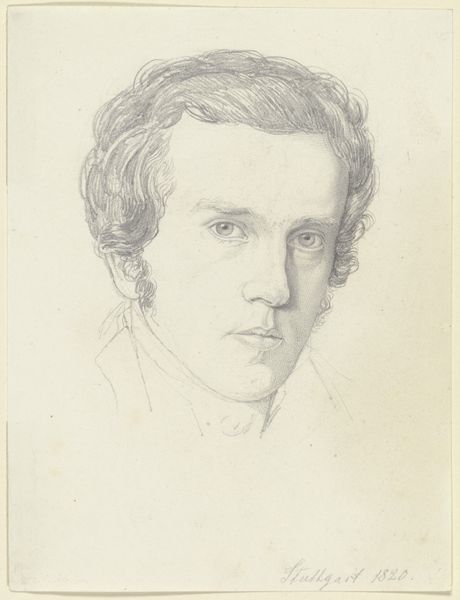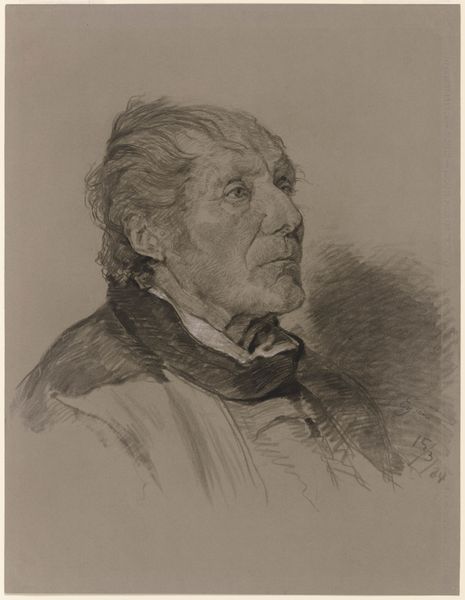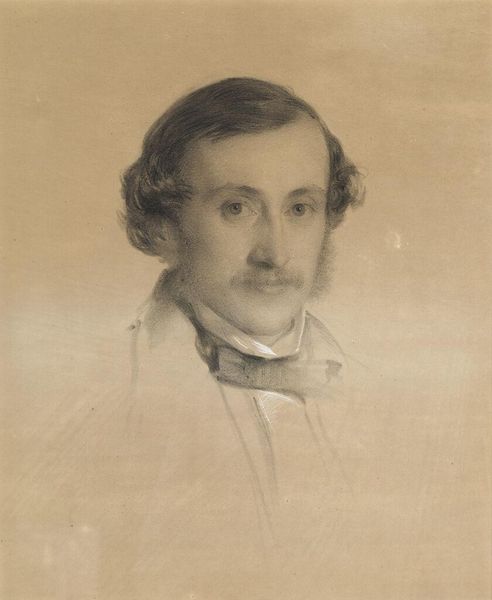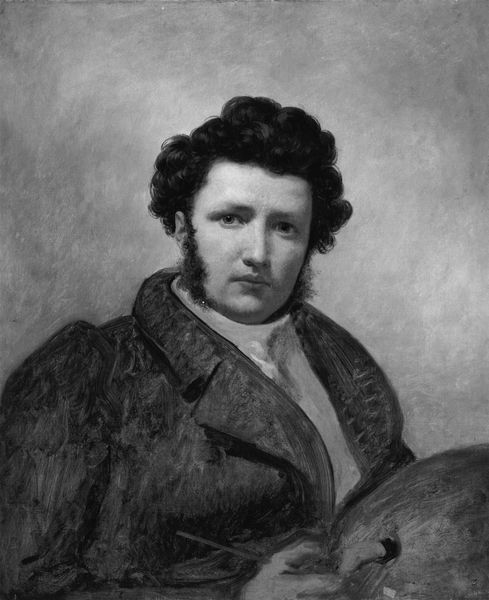
#
portrait
#
portrait image
#
portrait
#
portrait subject
#
male portrait
#
portrait reference
#
portrait head and shoulder
#
men
#
portrait drawing
#
facial study
#
genre-painting
#
facial portrait
#
realism
#
digital portrait
Dimensions: 19 7/8 x 14 3/4 in. (50.5 x 37.5 cm)
Copyright: Public Domain
Editor: Here we have Samuel Lovett Waldo's "Old Pat, the Independent Beggar," painted between 1816 and 1819. The portrait emanates a striking, stark realism. What draws your eye when you look at it? Curator: Primarily, the composition itself. Waldo orchestrates a potent visual tension between the detail lavished on the subject's face and the stark simplicity of the background and clothing. Note how the chiaroscuro—the sharp contrast between light and dark— sculpts the figure. Do you observe how the light strategically illuminates select facial features, guiding our gaze? Editor: Absolutely. The artist directs my attention to the subject’s gaze, highlighting a complex internal state. But how does the monochromatic palette enhance our understanding? Curator: Precisely. By eschewing color, Waldo strips away extraneous detail, forcing us to confront the essential forms and textures. The artist highlights the very act of painting. The brushstrokes themselves, especially in the rendering of the hair, become a focal point. Is it not the stark realism of the face coupled with rough brushstrokes creating a study of both character and form? Editor: That's an interesting point. The brushstrokes emphasize the artist's hand and invite us to contemplate not just who is depicted, but also the process of depiction. Curator: Precisely. It underscores that we are experiencing an image and being presented with the visual data from which we draw that experience, which encourages careful examination. It is through these formal qualities that the emotional weight of the image manifests. Editor: I see now how the lack of color amplifies the focus on form and brushstrokes. Thanks for your insight!
Comments
No comments
Be the first to comment and join the conversation on the ultimate creative platform.
